The rise of blockchain technology has already brought about significant changes in various sectors, particularly in finance, logistics, and legal industries. One of the most impactful innovations within blockchain is the concept of smart contracts—self-executing contracts where the terms of the agreement are directly written into lines of code. These contracts automatically enforce and execute the terms when predefined conditions are met. However, despite their potential for automation, smart contracts still rely on basic if/then statements, which limit their adaptability to more complex or dynamic scenarios.
This is where Artificial Intelligence (AI) enters the picture. AI-powered smart contracts can not only perform automated tasks but also make decisions based on real-time data, learn from experience, and adapt to changing conditions. In this article, we will explore how AI is enhancing smart contracts, pushing them beyond simple automation to become more intelligent, flexible, and responsive, offering new opportunities for businesses across industries.
What Are AI-Powered Smart Contracts?
AI-powered smart contracts combine the self-executing logic of traditional smart contracts with the advanced capabilities of artificial intelligence. These smart contracts are designed to learn from historical data and environmental changes, adapt to new circumstances, and make autonomous decisions that were once the responsibility of humans. This combination of blockchain and AI opens up new possibilities for automation, efficiency, and decision-making in a range of sectors.
For example, traditional smart contracts are limited to executing predefined tasks like transferring funds when conditions are met. In contrast, AI-powered smart contracts can analyze market trends, adjust payment structures, or even predict future events based on patterns in data. This adds an intelligent layer to the automation process, making the contracts capable of handling complex and evolving scenarios.
How AI Enhances Smart Contracts
- Improved Decision-Making and Adaptability Traditional smart contracts are rigid and deterministic: they follow predefined rules and can only execute actions when specific conditions are met. However, real-world scenarios are often more complex, dynamic, and less predictable. AI can address this limitation by enabling smart contracts to analyze and interpret data, making decisions based on changing circumstances. For instance, in a supply chain contract, an AI-powered smart contract can adjust payment schedules based on the fluctuation of raw material prices or supplier performance. AI can also predict potential delays in the supply chain and modify terms accordingly, enhancing flexibility and minimizing risks.
- Learning from Data for Predictive Capabilities One of the most powerful aspects of AI is its ability to learn from data. Through machine learning algorithms, AI can analyze past behavior, trends, and patterns to make informed predictions about the future. This capability can be integrated into smart contracts to enable them to anticipate changes and adjust their terms accordingly. In financial markets, AI-powered smart contracts could analyze trading patterns, market sentiment, and external factors (such as political events or economic shifts) to make real-time decisions about executing transactions. For example, an AI-powered smart contract in an investment scenario could automatically adjust its terms based on market volatility, allowing investors to modify their risk profiles without manual intervention.
- Increased Trust and Transparency Blockchain’s immutability and transparency are key advantages that make smart contracts attractive, especially in industries like finance, insurance, and real estate. However, the decision-making process behind these contracts is still based on a set of predefined rules that don’t account for unforeseen changes or complexities in the real world. By integrating AI, smart contracts can become even more transparent by ensuring that decisions are based on accurate, up-to-date data and open-source algorithms. Since blockchain technology records every action made by an AI-powered smart contract, stakeholders can trace the reasoning behind every decision, further enhancing trust in the contract’s execution.
- Real-Time Data Processing AI-powered smart contracts are capable of processing and analyzing vast amounts of real-time data, which is particularly important in environments like supply chain management, finance, and healthcare, where immediate responses to data are critical. For example, in an insurance scenario, an AI-powered smart contract could analyze real-time data about a client’s health status or accident report and automatically trigger claims processing. In agriculture, smart contracts could adjust payment terms based on real-time weather data or crop conditions, ensuring that farmers are paid fairly despite unpredictable conditions.
- Enhanced Security While traditional smart contracts are secure due to blockchain’s decentralized nature, AI-powered contracts can add an additional layer of security. AI can analyze patterns of potential security threats, identifying vulnerabilities or malicious activities in the system. In real-time, AI can take preventive actions to mitigate risks, such as flagging unusual transactions or identifying irregularities in contract performance, reducing the likelihood of fraud or attacks.
Real-World Use Cases of AI-Powered Smart Contracts
- Insurance Industry In the insurance sector, claims processing can often be slow, cumbersome, and prone to human error. By integrating AI, smart contracts can automatically assess and verify claims based on real-time data, such as medical records, accident reports, or weather conditions. For example, in travel insurance, AI-powered smart contracts can automatically process claims for flight delays by cross-referencing flight data and applying the terms of the policy. This reduces administrative costs, improves efficiency, and accelerates claim settlement times.
- Supply Chain and Logistics Supply chains are highly dynamic and depend on various external factors, such as weather, political changes, and transport disruptions. AI-powered smart contracts in the supply chain can analyze real-time data from sensors, GPS systems, and external market trends to make decisions about payment schedules, delivery times, and penalties for delays. These contracts can adjust terms automatically based on changing conditions, ensuring that all parties are treated fairly and that the system remains efficient.
- Financial Services and Banking In the financial industry, AI-powered smart contracts can revolutionize the way loans, mortgages, and financial agreements are executed. For example, AI can analyze an individual’s credit score, transaction history, and market conditions to determine loan terms automatically. If the borrower’s financial situation changes or if market conditions shift, the smart contract could adjust the interest rate or payment schedule without requiring human intervention. This ensures that financial agreements are flexible, dynamic, and tailored to each individual’s circumstances.
- Real Estate Transactions Real estate deals can often be bogged down by paperwork, negotiations, and delays. AI-powered smart contracts can automate various aspects of real estate transactions, such as property title verification, escrow management, and payment release. For instance, if an AI-powered smart contract detects that the buyer’s mortgage approval is taking longer than expected, it could automatically adjust the timeline for the transaction, providing both parties with an updated schedule.
Challenges and Future Outlook
While AI-powered smart contracts hold significant promise, there are several challenges to consider. One of the main issues is the complexity of integrating AI into the existing blockchain infrastructure, which can be resource-intensive and require significant investment in research and development. Moreover, the ability of AI to make autonomous decisions based on data raises ethical concerns about accountability and transparency.
Additionally, there are still regulatory hurdles to overcome, especially in industries such as finance, healthcare, and insurance, where the use of AI in smart contracts must comply with legal and ethical standards.
However, as AI technology continues to mature and blockchain adoption expands, AI-powered smart contracts are poised to reshape how we automate and execute agreements across industries. The next generation of smart contracts will be more intelligent, adaptive, and capable of handling complex tasks that were once impossible with traditional blockchain technology.
Conclusion
AI-powered smart contracts represent the next generation of automation, offering smarter, more flexible, and adaptive solutions to industries worldwide. By combining AI’s ability to process data and make intelligent decisions with blockchain’s secure, transparent, and immutable nature, these advanced contracts can transform sectors such as insurance, supply chain, finance, and real estate. While there are challenges to overcome, the future of smart contracts powered by AI holds enormous potential for improving efficiency, reducing costs, and enhancing user experience.


